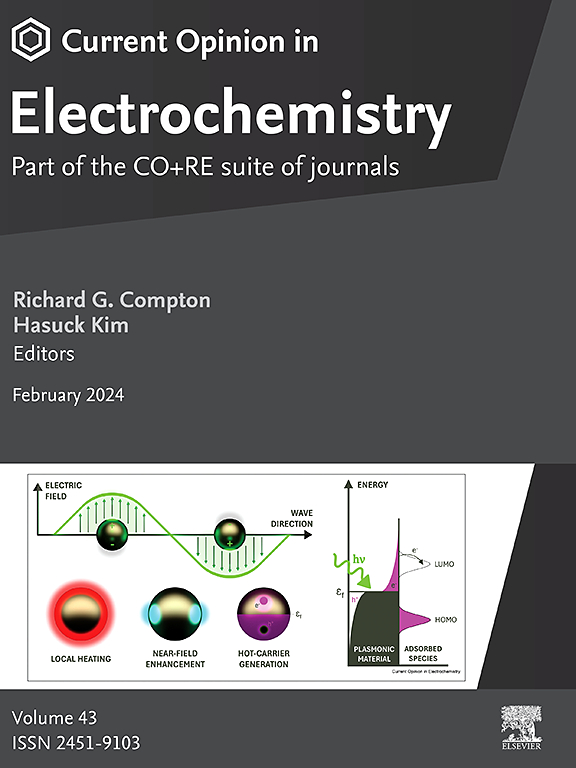Materials advancements in electrochemically mediated carbon capture
IF 6.9
2区 化学
Q1 CHEMISTRY, PHYSICAL
引用次数: 0
Abstract
Electrochemically mediated carbon capture (EMCC) has emerged as a promising technology for mitigating global warming, offering energy efficiency, environmental sustainability, and modular design flexibility. Despite its potential, the widespread adoption of EMCC systems faces challenges. Intrinsic issues, such as parasitic reactions and the limited reversibility of redox-active species, contribute to performance degradation over repeated carbon capture-release cycles. Additionally, scaling up bench-scale EMCC setups for industrial applications demands substantial efforts to overcome critical engineering bottlenecks. This review focuses on EMCC systems based on reversible mechanisms, highlighting recent advancements in material design from molecular to process levels to address the aforementioned challenges. We also provide perspectives on advancing the field through deeper fundamental understanding and the establishment of standardized evaluation protocols, aiming to accelerate the development and deployment of EMCC technologies at scale.
电化学碳捕获材料研究进展
电化学介导的碳捕获(EMCC)已经成为一项有前途的技术,可以缓解全球变暖,提供能源效率,环境可持续性和模块化设计的灵活性。尽管具有潜力,但EMCC系统的广泛采用面临着挑战。固有的问题,如寄生反应和氧化还原活性物质的有限可逆性,在重复的碳捕获-释放循环中导致性能下降。此外,为工业应用扩大试验台规模的EMCC设置需要大量的努力来克服关键的工程瓶颈。这篇综述的重点是基于可逆机制的EMCC系统,强调了从分子到工艺水平的材料设计的最新进展,以解决上述挑战。我们还提供了通过更深入的基础理解和建立标准化评估协议来推进该领域的观点,旨在加速EMCC技术的大规模开发和部署。
本文章由计算机程序翻译,如有差异,请以英文原文为准。
求助全文
约1分钟内获得全文
求助全文
来源期刊

Current Opinion in Electrochemistry
Chemistry-Analytical Chemistry
CiteScore
14.00
自引率
5.90%
发文量
272
审稿时长
73 days
期刊介绍:
The development of the Current Opinion journals stemmed from the acknowledgment of the growing challenge for specialists to stay abreast of the expanding volume of information within their field. In Current Opinion in Electrochemistry, they help the reader by providing in a systematic manner:
1.The views of experts on current advances in electrochemistry in a clear and readable form.
2.Evaluations of the most interesting papers, annotated by experts, from the great wealth of original publications.
In the realm of electrochemistry, the subject is divided into 12 themed sections, with each section undergoing an annual review cycle:
• Bioelectrochemistry • Electrocatalysis • Electrochemical Materials and Engineering • Energy Storage: Batteries and Supercapacitors • Energy Transformation • Environmental Electrochemistry • Fundamental & Theoretical Electrochemistry • Innovative Methods in Electrochemistry • Organic & Molecular Electrochemistry • Physical & Nano-Electrochemistry • Sensors & Bio-sensors •
 求助内容:
求助内容: 应助结果提醒方式:
应助结果提醒方式:


